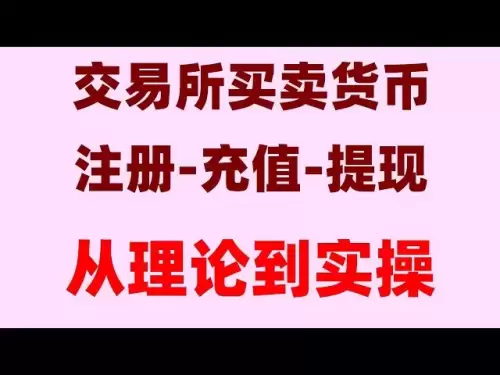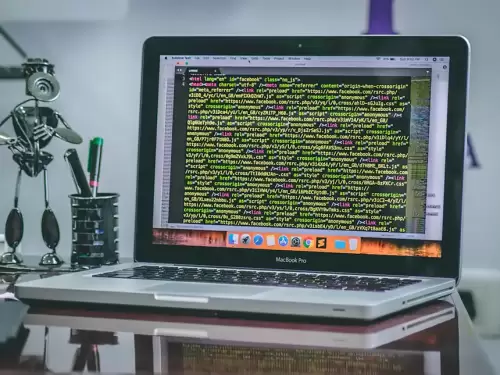 |
|
 |
|
 |
|
 |
|
 |
|
 |
|
 |
|
 |
|
 |
|
 |
|
 |
|
 |
|
 |
|
 |
|
 |
|
Ethereumの共同設立者Vitalik Buterinは、Ethereumのスケーリング戦略の洗練されたビジョンを導入しました。

In a recent blog post, Vitalik Buterin, co-founder of Ethereum, has proposed a modified vision for the cryptocurrency’s scaling strategy. This vision, which Buterin describes as "a local-node-favoring delta to the scaling roadmap," takes into account feedback and aims to balance the aggressive increases in L1 gas limit with the importance of decentralization and self-sovereignty for individual node operators.
最近のブログ投稿では、イーサリアムの共同設立者であるVitalik Buterinが、暗号通貨のスケーリング戦略に関する変更されたビジョンを提案しました。 Buterinが「スケーリングロードマップに対するローカルノードを好むデルタ」と説明しているこのビジョンは、フィードバックを考慮し、L1ガス限界の積極的な増加と個々のノード演算子の分散化と自己統治の重要性のバランスをとることを目指しています。
The post, titled "A Material Local Node Point Of View," focuses on a set of technical adjustments that can be made to ensure users can still run useful, privacy-preserving local nodes even as the network scales up.
「A Material Local Node Point of View」というタイトルの投稿は、ネットワークが拡大しても、ユーザーが有用でプライバシーを提供するローカルノードを実行できるようにするために行うことができる一連の技術的調整に焦点を当てています。
The Importance of Local Nodes
ローカルノードの重要性
Traditionally, a full node's role has been to validate the chain, ultimately ensuring trustlessness. With the introduction of ZK-EVMs, many have assumed this function will be sufficient, minimizing the need for individuals to run full nodes.
伝統的に、完全なノードの役割はチェーンを検証し、最終的には信頼性を確保することでした。 ZK-EVMの導入により、多くの人がこの関数が十分であると仮定しており、個人が完全なノードを実行する必要性を最小限に抑えています。
However, Buterin highlights a second critical use case: enabling local, trustless, and censorship-resistant access to ETH data through personal RPC endpoints. While zero-knowledge proofs and private information retrieval (PIR) protocols can address verification and privacy concerns when using third-party RPC services, Buterin points out key limitations:
ただし、Buterinは、個人のRPCエンドポイントを介してETHデータへのローカル、信頼のない、検閲に耐えるアクセスを可能にすることを可能にする2番目の重要なユースケースを強調しています。ゼロ知識の証明と個人情報検索(PIR)プロトコルは、サードパーティのRPCサービスを使用する際に検証とプライバシーの懸念に対処できますが、Buterinは主要な制限を指摘しています。
* **Cost Inefficiencies:** Fully cryptographic approaches for private information retrieval are likely to be very costly, especially for large data sets like the Ethereum state.
***費用の非効率:**個人情報の検索のための完全な暗号化アプローチは、特にイーサリアム状態のような大規模なデータセットでは非常に費用がかかる可能性があります。
* **Metadata Privacy Leaks:** Even with PIR, there's a risk of leaking metadata, such as the type of data being requested, which could be used to infer personal information.
***メタデータのプライバシーリーク:** PIRを使用しても、要求されるデータの種類など、メタデータが漏れているリスクがあり、個人情報を推測するために使用できます。
* **Centralization Risks:** Relying on a small number of third-party RPC providers creates a point of centralization, which could lead to censorship or downtime.
***集中リスク:**少数のサードパーティRPCプロバイダーに依存すると、検閲またはダウンタイムにつながる可能性のある集中化ポイントが作成されます。
These vulnerabilities, Buterin argues, ultimately necessitate the continued use of running personal nodes.
これらの脆弱性は、最終的には個人ノードの実行を継続的に使用する必要があると主張します。
A New Node Paradigm: Partially Stateless Nodes
新しいノードパラダイム:部分的にステートレスノード
To balance the advantages of statelessness with the need for local data access, Buterin proposes a new kind of node configuration: the partially stateless node.
ステートレスの利点とローカルデータアクセスの必要性のバランスをとるために、Buterinは新しい種類のノード構成、つまり部分的にステートレスノードを提案します。
This node would verify the blockchain statelessly, using methods like ZK-EVM or classic validation, but also maintain a configurable subset of the Ethereum state. This configuration would allow the node to fulfill RPC queries for relevant data, preserving privacy and autonomy.
このノードは、ZK-EVMやクラシック検証などの方法を使用して、ブロックチェーンをステートレレスに検証しますが、Ethereum状態の構成可能なサブセットも維持します。この構成により、ノードは関連するデータのRPCクエリを満たし、プライバシーと自律性を維持できます。
Users could configure which parts of the state to store based on their needs—such as frequently used wallets, specific ERC-20/721 tokens, or smart contracts relevant to DeFi and privacy tools. This flexibility would give users complete control over their local access and data footprint.
ユーザーは、頻繁に使用されるウォレット、特定のERC-20/721トークン、またはDefiおよびプライバシーツールに関連するスマートコントラクトなど、ニーズに基づいて保存する州のどの部分を構成できます。この柔軟性により、ユーザーはローカルアクセスとデータフットプリントを完全に制御できます。
Short- and Medium-Term Priorities
短期および中期の優先順位
To support this vision, Buterin recommends the immediate acceleration of several roadmap items:
このビジョンをサポートするために、Buterinはいくつかのロードマップ項目の即時加速を推奨します。
* **Increasing L1 gas limit to 100M units as soon as possible and continuing to increase it over time. This would allow for more complex computations and applications on L1.
*** L1ガス制限をできるだけ早く100mユニットに増やし、時間の経過とともに増加し続けます。これにより、L1でより複雑な計算とアプリケーションが可能になります。
* Deploying stateless verification as soon as possible to reduce the storage footprint of nodes.
*ノードのストレージフットプリントを減らすために、できるだけ早くステートレス検証を展開します。
In the medium term, the rollout of stateless verification would allow nodes to operate with even less storage by removing the need to hold Merkle branches. This change would further decrease the technical barrier to entry for new node operators.
中期的には、ステートレス検証の展開により、メルクルの枝を保持する必要性を削除することにより、より少ないストレージでノードを動作させることができます。この変更により、新しいノードオペレーターの入力に対する技術的障壁がさらに減少します。
Local Autonomy in a Scaled Ethereum
スケーリングされたイーサリアムのローカル自律
Buterin's adjusted roadmap shows a strong preference for preserving local node usability in the face of L1 scaling. This vision seems to present a valuable compromise.
Buterinの調整されたロードマップは、L1スケーリングに直面してローカルノードの使いやすさを維持することを強く好むことを示しています。このビジョンは、貴重な妥協点を提示しているようです。
With Buterin's proposals, Ethereum could grow 10–100x in block capacity without forcing users into centralized data dependencies or compromising on trustlessness and privacy. The partially stateless node, if widely adopted, could become a cornerstone of this balance—empowering users with high-efficiency, low-footprint tools to remain sovereign participants in the ecosystem.
Buterinの提案により、Ethereumは、ユーザーを集中データの依存関係に強制したり、信頼性とプライバシーに妥協することなく、ブロック容量が10〜100倍成長する可能性があります。部分的にステートレスノードは、広く採用されていれば、このバランスの基礎になる可能性があります。エコシステムの主権参加者を維持するための高効率で低い足跡のツールを備えているユーザーに容易になります。
免責事項:info@kdj.com
提供される情報は取引に関するアドバイスではありません。 kdj.com は、この記事で提供される情報に基づいて行われた投資に対して一切の責任を負いません。暗号通貨は変動性が高いため、十分な調査を行った上で慎重に投資することを強くお勧めします。
このウェブサイトで使用されているコンテンツが著作権を侵害していると思われる場合は、直ちに当社 (info@kdj.com) までご連絡ください。速やかに削除させていただきます。




























































